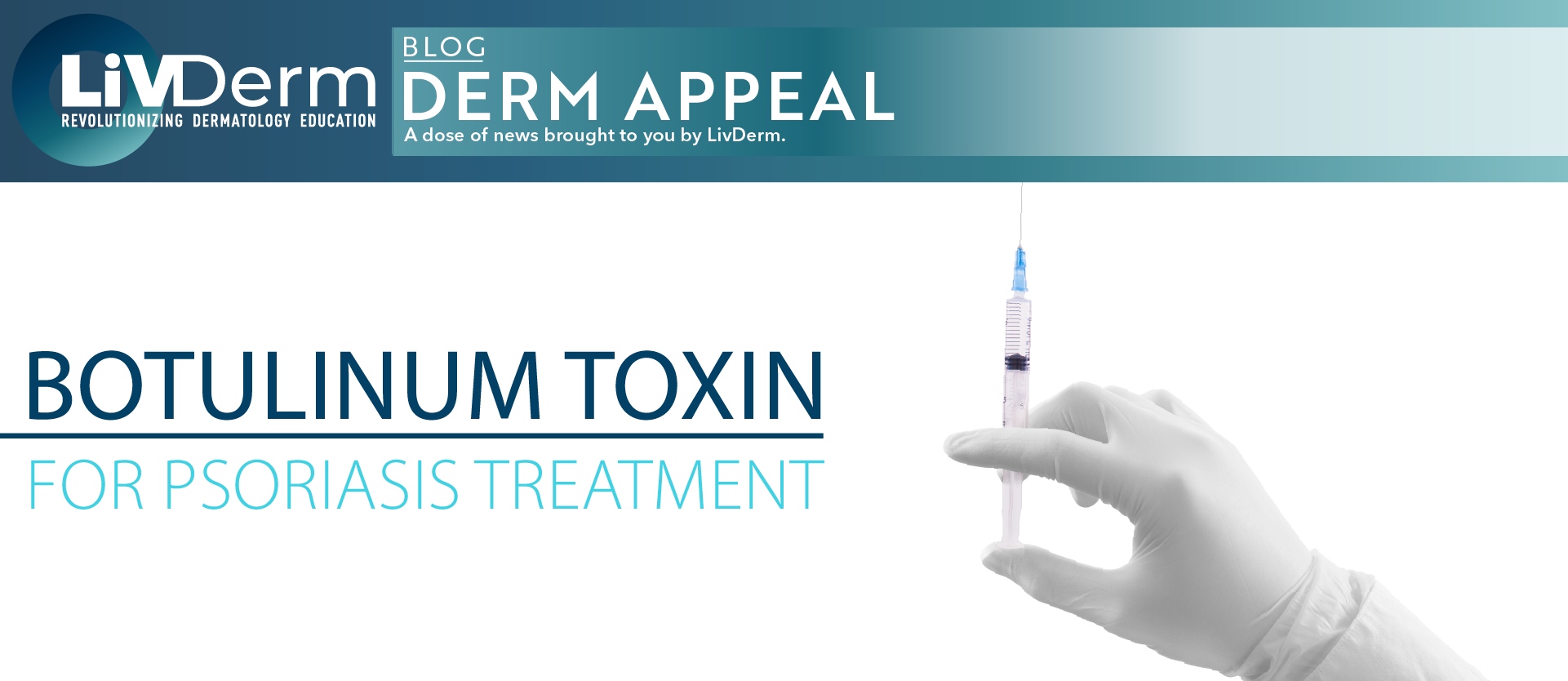Prior research has demonstrated that neurotransmitters may play a role in the pathogenesis of numerous cutaneous conditions, including psoriasis, revealing the close connection between the skin and the central nervous system. Reports have even shown that psoriasis symptoms can improve after peripheral nervous system injury. As such, there is promising potential for neuromodulators, such as botulinum toxin, to be used as a treatment for psoriasis and other dermatologic conditions.
Patients with psoriasis can experience a significant improvement in their total clinical score (TCS) after botulinum toxin treatment, according to a recent study published in Dermatologic Therapy.
Psoriasis Symptoms and Botox
A team of researchers conducted a proof-of-concept study of botulinum toxin in 8 patients with stable plaque psoriasis and some lesions that were not responsive to therapy; 6 patients were prescribed a topical therapy only and 2 patients were given a biologic therapy. The mean age of the patient cohort was 50.75 years, the majority were White, and the initial average total clinical score was 8.
In the case of each patient, the investigators selected up to 2 plaques with a maximum diameter of 5cm2. Participants received a single injection of botulinum neurotoxin A (BoNT-A) at a dilution of 5 units per cm2 with a maximum of 50 units. The team performed a clinical evaluation, measurement of total clinical score, and photographic record were performed at weeks 0, 2, and 4 after treatment.
Significant Improvement After Treatment
At 4 weeks after treatment, researchers reported that the total clinical score was 4.92, a difference of over 3 points revealing significant clinical improvement. All of the parameters evaluated, including desquamation, erythema, and infiltration, for the TCS score were improved. Especially important was the improvement in erythema and infiltration of the evaluated lesions, according to the study’s authors. In addition, 2 patients reported a significant decrease in pruritus associated with their psoriasis lesions.
“Our results indicated a substantial improvement in all patients, 4 weeks after treatment, with no significant side effects,” stated the researchers. Furthermore, no adverse events were reported, and no adverse events were related to botulinum toxin injection. None of the study’s participants discontinued their participation during the observation period although, the small size of the cohort was one of the study’s primary limitations.
Nonetheless, the latest findings indicate great promise for botulinum toxin as a psoriasis treatment. “Our study showed a significant improvement of 38.5% of mean difference (P = .001) of the TCS score following a single dose of BoNT, documented by photographic evaluation,” the study’s authors explained. These results are concordant with other studies that have shown an improvement of psoriasis plaques following BoNT injections. This improvement in recalcitrant psoriasis lesions with a single application of a product with a high safety profile proposes a novel target in psoriasis treatment.”
Further investigation of this therapeutic method is necessary, especially trials including a larger and more diverse patient cohort. Additionally, more research into the novel mechanism of botulinum toxin and its interference with the immunopathogenesis of psoriasis is warranted as this method has great potential to significantly improve the quality of life of patients.

















